 October 12, 2023 John E. Ross, KD8IDJ, Editor
| ||||||
ARRL Urges Comments to FCC on 60-Meters Proposal: How to File Your Comments ARRL is asking that all radio amateurs urge the Federal Communications Commission (FCC) to continue the existing use of the 60-meter band. A public comment period is open until October 30, 2023. ARRL encourages expressions of support to the FCC for the current 100 W ERP power limit (instead of reducing the power limit to 15 W EIRP) and continuing secondary access to the current channels. Click here to see the full graphic explaining what's at stake. To submit a filing of your comments for the FCC's consideration in the rulemaking process, go to the FCC web page for the Notice of Proposed Rulemaking's (NPRM) Docket Number 23-120 at https://www.fcc.gov/ecfs/search/docket-detail/23-120. If you wish to directly enter your comments, select the button labeled SUBMIT AN EXPRESS FILING or if you are uploading a document that contains your comments, select SUBMIT A STANDARD FILING. When submitting your comments, be sure the correct proceeding's docket number, 23-120, is included on the form. Your name and comments will be entered into the official public record of the proceedings and will be viewable by anyone who visits the docket web page. While radio amateurs are encouraged to include any comments they would like in their submissions, they're especially encouraged to draw upon their personal experiences using the 60-meter band for public service purposes and for its location between the amateur 80- and 40-meter bands, which is critical to ensuring signal propagation to certain geographic areas during variations in time and the solar cycle. For example, ensuring radio amateurs have a continuum of communication capabilities across the 7 MHz, 5 MHz, and 3.5 MHz bands is valuable for emergency communications, especially between the US and Caribbean nations during hurricane season. Some of the main points to comment on for this NPRM are:
ARRL Public Relations and Outreach Manager Sierra Harrop, W5DX, underscored the importance of commenting, urging members to speak up. "ARRL members make up the strongest voice in matters of amateur radio spectrum defense," said Harrop. "Your membership and participation in the rulemaking process both ensure ARRL continues to make the difference when our band privileges are threatened. Please join us in effort to protect our 60-meter band privileges." ARRL has assembled a web page with instructions on how to submit your comments, as well as background information on the issue: www.arrl.org/60-meter-band. Local Amateur Community Rallies to Support Collegiate Club for QSO Party By Todd Emmert, W9TWE Indiana State University Amateur Radio Club, W9ISU, had a successful ARRL Collegiate QSO Party, held October 7 - 8, thanks to the support of local hams.
The club has faced challenges in recent months, including being displaced due to campus renovations and having minimal student involvement; they didn't even have a multimode, multiband transceiver. In an effort to boost interest and attention to amateur radio, Faculty Advisor Dr. Robert Girod, N9RNV, offered 10% extra credit to students who earned their Technician-class amateur radio license. That incentive, along with efforts from student leader and W9ISU President Rowan Eggert, WO1P, helped turn things around. The club received a grant from the school that allowed them to purchase three stations, Icom IC-7300s with Heil Pro 7 headsets, foot switches, and antennas. The gear made it possible for them to set a goal of having everything up and running for the 48 hours of the ARRL Collegiate QSO Party. Eggert listed the event on the local radio club's social media pages to get the word out to any alumni that would be interested in helping or getting on the air.
She also got with the local Boy Scouts and set up a public demonstration during the QSO party for them. Eggert also invited other faculty to stop by and see what W9ISU was all about. There was hurdle after hurdle during the week leading up to the event. After finding out the newly ordered antennas were not shipped, and there weren't any solid answers on when they would ship, Rowan went into crisis management mode and reached out to local hams and clubs --the amateur community rallied. Local radio amateurs provided use of a Yagi for satellite contacts, and three multiband, portable verticals and coax for the HF stations. Friday night, as the operating event neared, Eggert; Seth Byas, KI5QHD, and Dr. Girod were unable to get the SWR correct on the antennas, so they reached out on a local repeater for assistance.
It just so happened that one of their supporting clubs and ARRL Affiliated Club, Wabash Valley Amateur Radio Association (WVARA), W9UUU, was having a dinner and meeting a few blocks away. After WVARA tended to their own club business, a calvary of hams showed up with an antenna analyzer and over a century of cumulative expertise to help get all three W9ISU stations on the air in less than 45 minutes. (They complied with the event rules, which stated operating only one transmitter at a time.) The W9ISU club went on to stay up day and night making contacts, eating food, talking radio, and hosting guests and alumni for the next 46 hours.
Faculty Advisor David Barber, KB9YDX, brought technical expertise and donuts on Saturday and Sunday. The club members were anxious to get the logs compiled and see how they ranked in points. Regardless, they learned a lot and felt the support of their amateur community. ARRL has resources for collegiate amateur radio clubs. The ARRL Collegiate Amateur Radio Program (CARP) was established to support and promote Amateur Radio among students and ham radio clubs at colleges and universities. More information can be found at www.arrl.org/collegiate-amateur-radio. Jamboree-on-the-Air is on October 20 - 22, 2023 Jamboree-on-the-Air (JOTA), the largest Scouting event in the world, takes place on the third weekend of October (10/20 - 10/22). Here are the event rules:
More information about JOTA may be found on the Scouting website, at https://www.scouting.org/international/jota-joti/jota/. 2023 ARRL Online Auction Is Ready to Go!!! Bid and to show support for ARRL education programming during the 18th Annual ARRL Online Auction. The auction is open now, and bidding began on Friday, October 13 at 10 AM EDT, and continues through Thursday, October 19 at 10 PM EDT. RT Systems, Inc. is sponsoring this year's auction, which will feature QST Product Review equipment, vintage books, and the ever-popular ARRL Lab Mystery boxes. Visit the auction website, register to bid, and check out details on the available items so you'll be ready to bid on your favorites. Prospective bidders must register and create an account. Your ARRL user ID and password will not work on the auction site. Registration is a one-time action. If you have previously registered for the ARRL Online Auction, you can use that same username and password to sign in to this year's auction. If you have forgotten your username or password, click on the Help tab for assistance. It's not necessary to register to browse the items for sale, and you can register at any time during the auction at the ARRL Online Auction website. ARRL's Annual Online Auction is an important fundraiser and a critical means of support for ARRL educational programming. Auction proceeds ensure the continuation of programs that support the licensing of new hams, Amateur Radio Emergency Service training, and enhancements to technical and operating education for all ARRL members and the greater amateur radio community. If you don't want to bid but still would like to contribute to the ARRL Education & Technology Fund, visit arrl.org/donate. For more information about the ARRL Online Auction, contact Lisa Tardette, KB1MOI. Amateur Radio in the News ARRL Public Information Officers, Coordinators, and many other member-volunteers help keep amateur radio and ARRL in the news. "Amateur Radio club tunes in to chess tournament" / The MSU Exponent (Montana) October 5, 2023 -- Montana State University Amateur Radio Club Radio Club, W7YB. "Local ham radio group trains to support hospital system during cyber attack" / Point/Plover Metro Wire (Wisconsin) October 8, 2023 -- Portage County Amateur Radio Emergency Service. ARRL Podcasts On the Air The Solar Eclipse QSO Party: When Operating is Science Gary Mikitin's, AF8A, article, "The Solar Eclipse QSO Party: A Fun Way Support Radio Science" in the September/October 2023 issue of On the Air details how hams can contribute data to a study on how the ionosphere reflects radio signals during the eclipse via an easygoing on-air event called the Solar Eclipse QSO Party. Gary, who is the Amateur Radio Community Coordinator of HamSCI, joins us on the October episode of the On the Air podcast, to talk about just how easy it is to participate. ARRL Audio News The On the Air podcast is available on iTunes (iOS). The On the Air podcast and ARRL Audio News are also on blubrry -- On the Air | ARRL Audio News. Announcements The Radio Society of Great Britain (RSGB) is offering a live stream of their 2023 convention on Saturday, October 14, and Sunday, October 15. The RSGB convention also hosts the AMSAT-UK Colloquium, which consists of a series of speakers including AMSAT-UK Chariman Prof. Sir Martin Sweeting, G3YJO, and AMSAT NA VP Educational Relations Alan Johnston, KU2Y. Overall, there will be 12 presentations throughout weekend including the popular RSGB Buildathon. Registration for the live stream portion of the RSGB conference must be completed prior to the event, and convention organizers recommend registering sooner rather than later. You can find out more details about the convention live stream, including how to register, on the RSGB website. In Brief... The first of two Solar Eclipse QSO Parties (SEQP) is this Saturday, October 14, from 1200 - 2200 UTC. ARRL is partnering with HamSCI to promote participation in the event. The SEQP consists of a series of global experiments that are part of HamSCI's Festivals of Eclipse Ionospheric Science, which has the goal of learning more about how the ionosphere works. All radio amateurs need to do is operate, using any mode and band (except for the World Administrative Radio Conference bands) for all or part of the day, then upload their logs. Participation can be from anywhere; you don't need to be near the path of the eclipse to contribute valuable data. You don't even have to be a licensed ham to participate in the experiment (only to transmit). For SEQP contest information and rules, visit HamSCI . If you're an SWL or AM DXer, you might be interested in the Medium Wave Recording Event, which will help provide researchers with data on the rapidly changing listening conditions during the solar eclipse. Additional information on solar eclipses and their effects on radio waves can be found on the BBC website. The October 2023 issue of The Spectrum Monitor features a story by Ron Wilcox, KF7ZN, about HamSCI and the upcoming solar eclipse. ARRL members can find out more about the SEQP by reading "The Solar Eclipse QSO Party: A Fun Way to Support Radio Science" in the September/October 2023 issue of On the Air magazine. The latest episode of the On the Air podcast features the article's author, Gary Mikitin, AF8A, talking about the event. The next solar eclipse will pass across the continental United States on April 8, 2024. The York County Amateur Radio Society (YCARS) in Rock Hill, South Carolina, has received a $100,000 grant for Project Target, which encompasses several initiatives to help serve York County through education and public service. Scott Putnam, KG9V, YCARS Secretary and Manager for Project Target, said the grant will be a game changer for the entire York County community, and it will help in three specific areas. "First, it will provide funding to help educators and students in local educational institutions with STEM (science, technology, engineering, and mathematics) education. The grant will fund equipment, study materials, and training to introduce students to the principles of wireless and radio communications, as well as their application in the real world," Putnam said. He added that the grant will also "[fund] new communication assets that will allow YCARS to expand its auxiliary communication services to local and state emergency management and local first responders, and [will] provide radio communications to local charities for public service events." The grant will also help fund the construction of a remotely operated radio station at the YCARS facility. This station will be accessible to two local school amateur radio clubs and scouting troops, as well as licensed amateur radio operators who reside in assisted living facilities, or who live in an area with antenna restrictions. The grant was awarded by ARDC. The Allianz Partners Richmond (Virginia) Marathon needs experienced amateur radio operators to help at this year's event on November 11. Operators who have experience providing ham radio assistance at public events, with being a part of the Amateur Radio Emergency Service® (ARES®), or with using the Radio Amateur Civil Emergency Service (RACES) protocol are requested to volunteer. Two volunteer operators are needed at both of the event's medical tents, as well as at the starting line. Each of the four support and gear (SAG) vehicles will need one operator who will have their own handheld digital mobile radio and a magnetic mount antenna to ensure reliable communications throughout the course. Two ham volunteers are needed as floaters, who will use their own vehicles to help the on-course operators as needed. Floaters will need their own mobile radios (with antennas). Amateur radio operators who are interested in volunteering should email Jim Rubin, W4PKR, at w4pkr@arrl.net with their full name and call sign; cell phone number; shirt and reflective vest size; experience operating at events, including any EmComm work, and portable and mobile equipment they have. The email subject line should include 2023 Richmond Marathon. For more information, visit Allianz Partners Richmond Marathon. The K7RA Solar Update Tad Cook, K7RA, of Seattle, Washington, reports for this week's ARRL Propagation Bulletin, ARLP041: The numbers looked better during this reporting week, October 5 - 11, 2023. The average daily sunspot numbers rose from 128.6 to 144.1, and the
average solar flux rose from 155.6 to 159.1. The average daily planetary A index decreased from 9.1 to 7.6, as did the average middle latitude A index from 8.9 to 8.3. For some reason, the middle latitude numbers were not available from Fredericksburg, Virginia, so we used the data from Boulder, Colorado. Nine new sunspot groups emerged this week, with two on October 5, one on October 7, two on October 8, one on October 9, one on October 10, and two on October 11. HF conditions have been excellent, as the season turns deeper into fall in the Northern Hemisphere. I really noticed a difference on 10, 12, and 15 meters. The predicted solar flux is 158 and 156 on October 12 - 13; 155 on October 14 - 16; 152 on October 17 - 18; 148 on October 19 - 20; 150, 152, 154, 154, and 158 on October 21 - 25; 160 on October 26 - 28; 158 on October 29 - 30; 156 on October 31 through November 1; 155, 156, 156, 158, and 160 on November 2 - 6; 158 on November 7 - 8, and 156 on November 9 - 10. The predicted planetary A index is 12 on October 12 - 13; 10, 8, 5, 12, and 10 on October 14 - 18; 5 on October 19 - 30; 15 and 12 on October 31 through November 1; 5 on November 2 - 5; 10, 8, and 10 on November 6 - 8; 15 on November 9 - 10, and 8 on November 11. Check out these links: The 15,000-year history of extreme solar events: Commercial space companies approach their first solar maximum: Korean records from the 14th to 19th century reveal sunspot cycle history: Safely watch the eclipse with a disco ball (I don't actually know if this is safe): Ring of fire solar eclipse: Solar polarity flip: Sunspot numbers for October 5 - 11, 2023, were 179, 138, 145, 149, 129, 120, and 149, with a mean of 144.1. The 10.7-centimeter flux was 156.1, 155.3, 157.2, 157.1, 165.5, 164.4, and 158, with a mean of 159.1. Estimated planetary A indices were 16, 9, 5, 7, 8, 4, and 4, with a mean of 7.6. The middle latitude A index was 17, 8, 4, 10, 9, 6, and 4, with a mean of 8.3. A comprehensive K7RA Solar Update is posted Fridays on the ARRL website. For more information concerning radio propagation, visit the ARRL Technical Information Service, read "What the Numbers Mean...," and check out the Propagation Page of Carl Luetzelschwab, K9LA. A propagation bulletin archive is available. For customizable propagation charts, visit the VOACAP Online for Ham Radio website. Share your reports and observations. A weekly, full report is posted on ARRL News. Just Ahead in Radiosport Yearlong -- ARRL Volunteers On the Air (VOTA). See the State Activations Schedule for weekly W1AW Portable Operations, including:
Upcoming Contests:
Visit the ARRL Contest Calendar for more events and information. Upcoming Section, State, and Division Conventions
Search the ARRL Hamfest and Convention Database to find events in your area. Have News for ARRL? Submissions for the ARRL Letter and ARRL News can be sent to news@arrl.org. -- John E. Ross, KD8IDJ, ARRL News Editor
ARRL -- Your One-Stop Resource for
Subscribe to...
Free of charge to ARRL members...
| ||||||
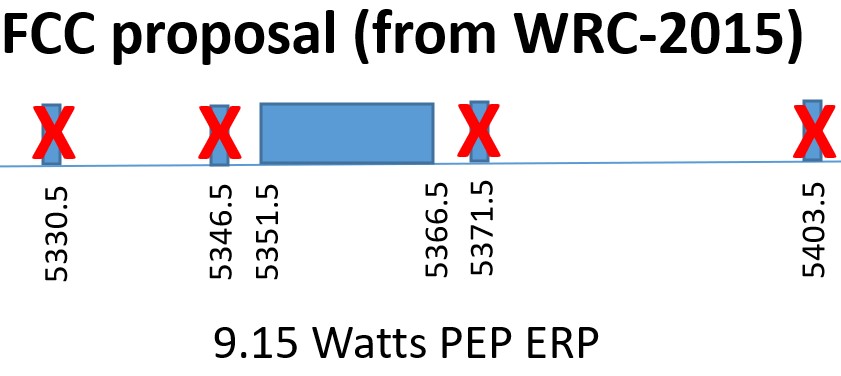
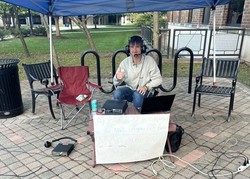
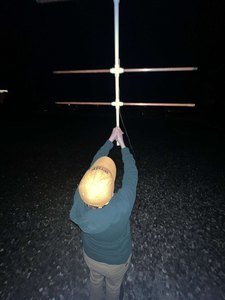
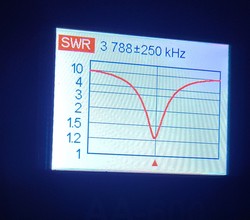
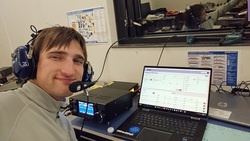
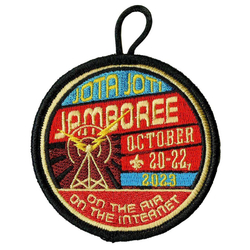 This annual global operating event allows Scouts to use amateur radio to connect with hams around the world. The event is supported by many local amateur radio clubs and individual operators. JOTA starts Friday and ends Sunday, but there are no official hours of operation, so you have the whole weekend to make JOTA contacts.
This annual global operating event allows Scouts to use amateur radio to connect with hams around the world. The event is supported by many local amateur radio clubs and individual operators. JOTA starts Friday and ends Sunday, but there are no official hours of operation, so you have the whole weekend to make JOTA contacts.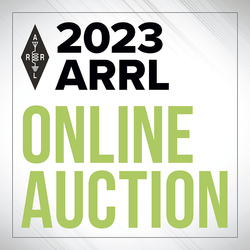 Keep an eye on the
Keep an eye on the .jpg)
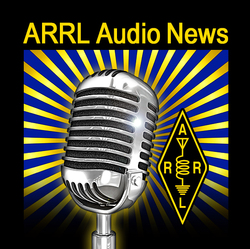 Listen to
Listen to 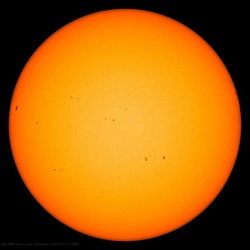
.jpg)
-Blue.jpg)








